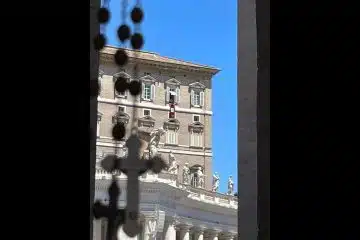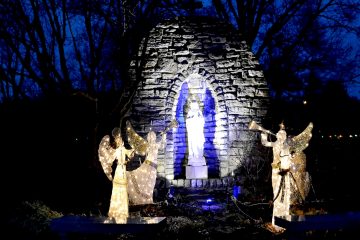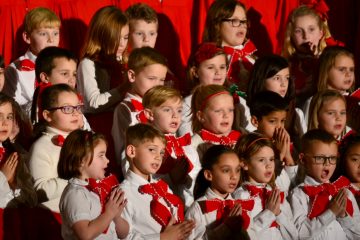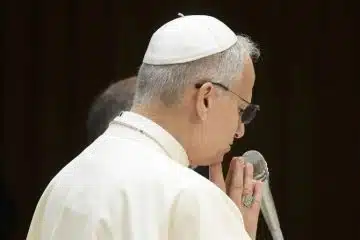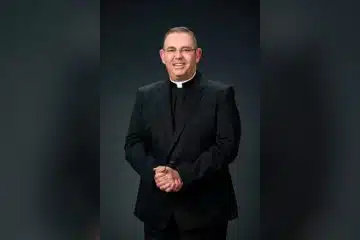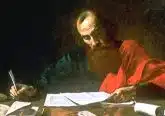“Eschatological” Man, Part Four: Raised Male and Female

Note: This article is part of an ongoing series on Pope St. John Paul II’s “Theology of the Body” (TOB).
In the resurrection of the body, our human nature will be transformed and perfected. Scripture describes this as being “like angels in heaven” (Mt. 22:30, Mk. 12:25). However, as I have emphasized, this does NOT mean that we literally become angels, who are pure spirits. Rather, we will experience a renewed unity of body and soul through which the body will experience a new “spiritualization.” This “signifies not only that the spirit will master the body, but… that it will also fully permeate the body and the powers of the spirit will permeate the energies of the body” (TOB 67:1). In the resurrection, the unity of body and soul will be marked by perfect harmony, integrity and spontaneity, a state which Pope St. John Paul II referred to as “the definitively and perfectly ‘integrated’ state of man” (TOB 66:6).
This new experience of our human nature does not detract in any way from the fact that humans are bodily beings. The nature, identity and destiny of human beings always includes the body. In addition, as we explored when discussing “original unity,” our bodies reveal that we are made male or female by God. We discover this sexual difference in the body, but it is deeply rooted in the ontological structure of the human person. Indeed, the resurrected human person retains his/her identity as male or female, and the resurrected body will continue to be characterized by this sexual identity. As Pope St. John Paul II taught, our “human bodies, which are recovered and also renewed in the resurrection, will preserve their specific masculine or feminine character,” but “the meaning of being male or female in the body will be constituted and understood differently” (TOB 66:4). This difference has to do with the fact that, as Scripture attests, there will be no earthly marriage in the resurrection (see Lk. 20:35-36, Mt. 22:30, Mk. 12:25). Why will marriage be no more in the life to come?
Pope St. John Paul II gives two reasons as to why eschatological man does not participate in earthly marriage. The first has to do with the close connection between marriage and procreation.
In man’s original and historical dimensions, our maleness and femaleness have had a specifically spousal character. Through the sexual difference revealed by the body, we discover that we are called to make a total gift of self and so enter into a communion of persons. The primordial form of this self-giving and communion is marriage, which Pope St. John Paul II saw as the only proper “place” for the total self-giving by which we become one flesh and through which our love can become incarnate in the gift of a child (i.e., procreation).
Through procreation, spouses cooperate with God’s creative action, expanding and replenishing the human race in the face of our mortality and thereby fulfilling God’s commandment to “be fruitful and multiply, fill the earth and subdue it” (Gen. 1:28). However, in the new world, we will be immortal. There will be no need to replenish the human race for death will be no more.
In addition, the new world will not need to be filled and subdued like this one. Rather, it will be “the world of God… who will completely fill it, becoming ‘all in all’ (1 Cor 15:28)” (TOB 66:2). Pope St. John Paul II saw this new situation as “the definitive fulfillment of the human race,” which entails its “quantitative closure” (66:2). The human family will be complete, and there will be no more procreation. Therefore, earthly marriage will lose one of its primary reasons for existence. As our Lord said, “Those who are accounted worthy to attain to that age and to the resurrection from the dead neither marry nor are given in marriage, for they cannot die any more” (Lk. 20:35-36).
The second reason Pope St. John Paul II gave for why eschatological man does not participate in earthly marriage is even more theologically and spiritually profound. We will delve into those reflections and their implications for our present life, next time.
 Dr. Andrew Sodergren, MTS, PSY.D is a Catholic psychologist and director of psychological services for Ruah Woods. He speaks on the integration of psychology and the Catholic faith. He and his wife, Ellie, have five children.
Dr. Andrew Sodergren, MTS, PSY.D is a Catholic psychologist and director of psychological services for Ruah Woods. He speaks on the integration of psychology and the Catholic faith. He and his wife, Ellie, have five children.
This article appeared in the January 2025 edition of The Catholic Telegraph Magazine. For your complimentary subscription, click here.



